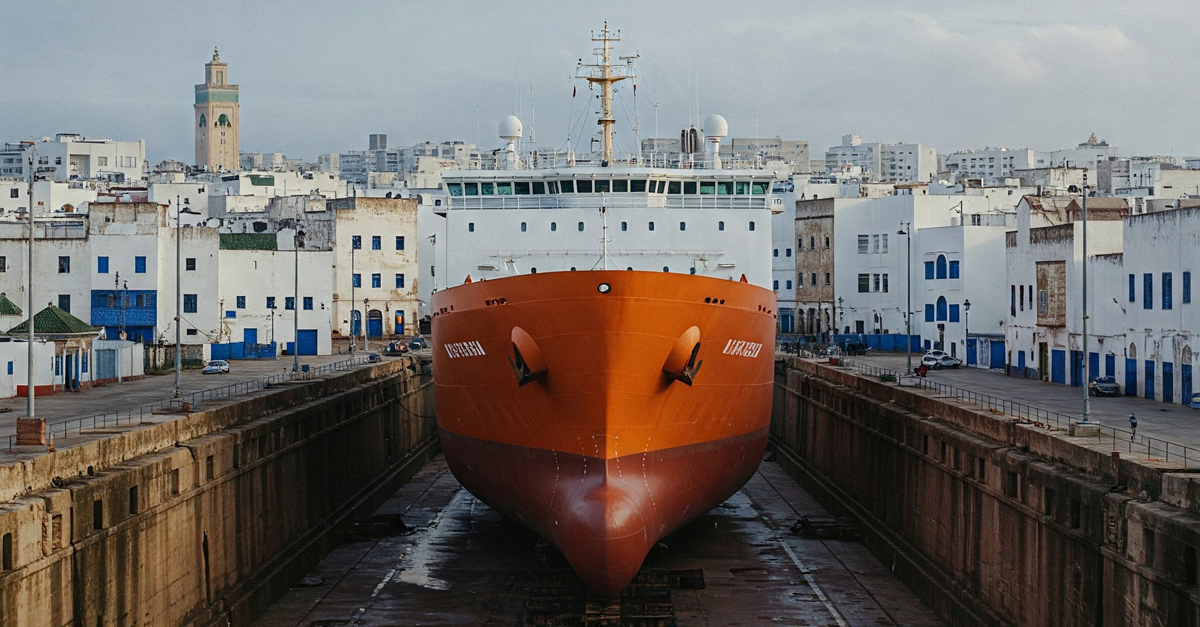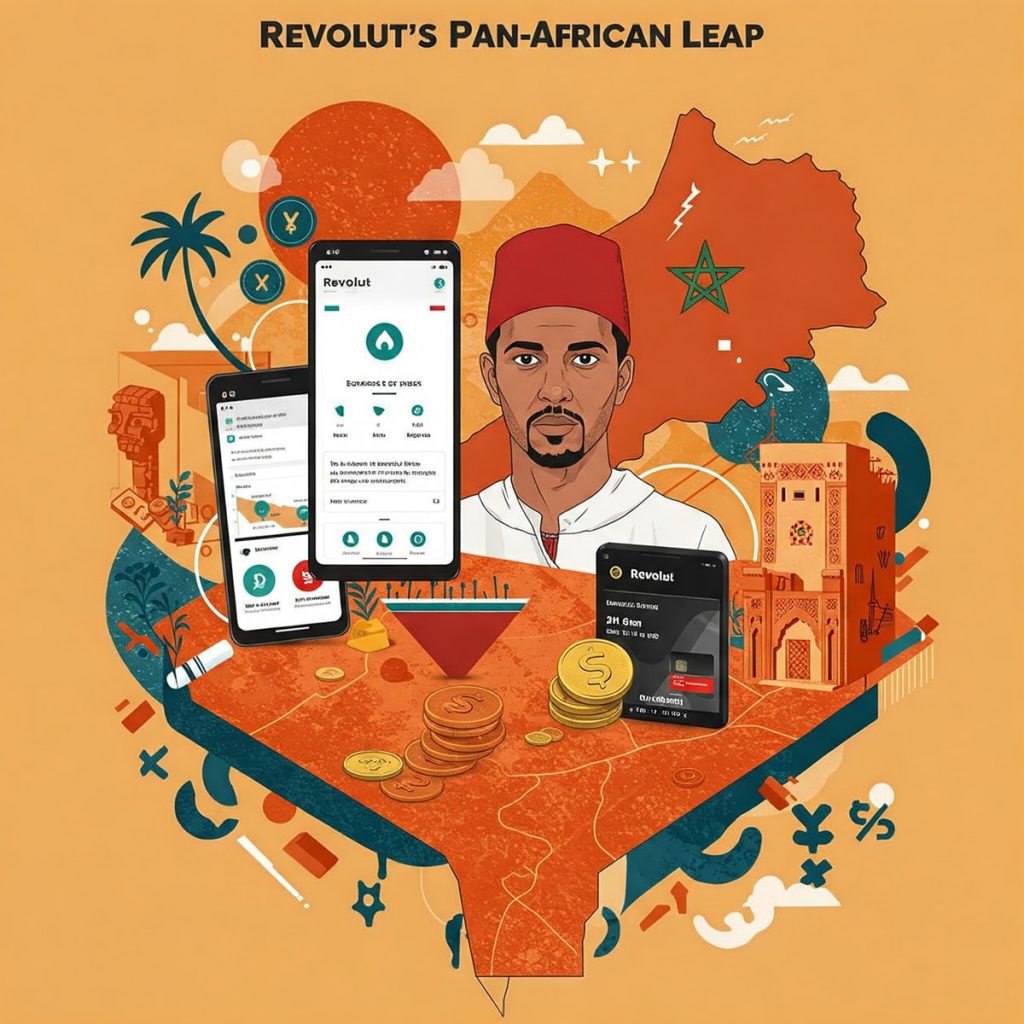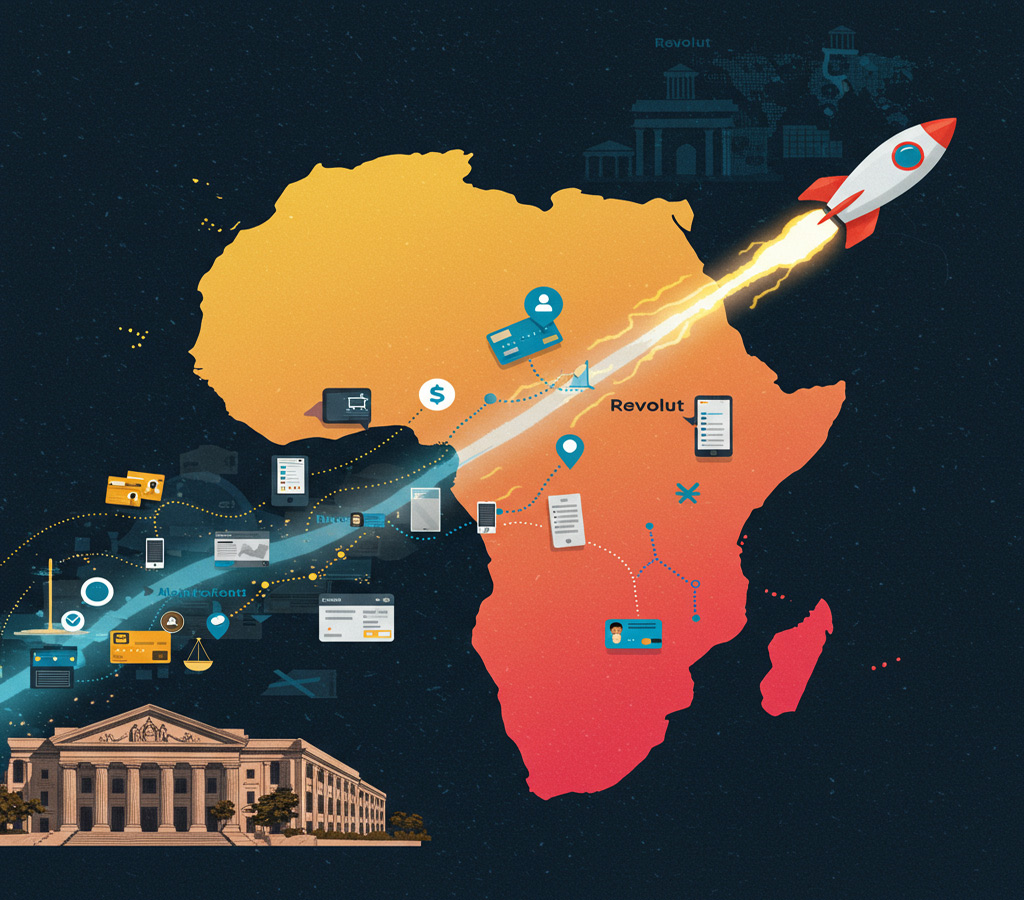Strategic Imperative and Project Overview
Consolidating Maritime Leadership
Morocco has initiated an international tender for the concession, development, equipping, operation, and maintenance of what is slated to become Africa’s largest shipyard. Located in Casablanca, this ambitious $300 million project signifies a strategic move to enhance Morocco’s maritime capabilities and establish the nation as a key player in the regional and continental maritime industry. The National Ports Agency (ANP), a state-run entity, is spearheading this initiative, seeking experienced operators for a 30-year concession to manage the expansive 52-acre facility. This development mirrors Morocco’s successful trajectory in the automotive sector, where it has emerged as a significant exporter to the European Union. The government aims to replicate this industrial prowess in the maritime domain, fostering economic growth and technological advancement.
State-of-the-Art Infrastructure
The tender documents released by the ANP provide detailed specifications of the planned infrastructure. Key installations will include a substantial 244-meter by 40-meter dry dock, capable of accommodating large vessels for repair and maintenance. Additionally, a 150-meter by 28-meter lifting platform with a 9,000-tonne capacity will enable efficient handling of various ship types. The facility will also feature a 62-meter by 13-meter basin equipped with a 450-ton gantry crane, further enhancing its operational capabilities. Complementing these core structures will be 820 linear meters of outfitting quays, providing ample space for post-docking work, and 21 hectares of open terrain dedicated to operational activities and logistical support. This comprehensive infrastructure underscores the scale and ambition of the project.
Attracting Global Expertise
The international tender mandates that bidding companies possess at least ten years of experience in operating comparable shipyards. This requirement aims to ensure that the project is entrusted to seasoned professionals capable of managing a facility of this magnitude and complexity. The tender allows for both independent bids and consortiums, with the latter requiring an experienced operator to lead the group. Industry sources suggest that prominent international players such as France’s Naval Group, a leading naval contractor, and South Korea’s Hyundai, the operator of the world’s largest shipyard in Ulsan, are potential frontrunners for the contract. The involvement of such experienced entities highlights the global interest in this strategic African maritime project.
Strategic Objectives and Regional Impact
Enhancing Naval Autonomy
Beyond serving commercial and fishing vessels, the new shipyard will provide critical maintenance and repair services for Morocco’s military fleet. This capability is particularly significant as it will allow Morocco to maintain its naval vessels domestically, thereby reducing the expenditure of foreign currency on overseas services. This move aligns with Morocco’s broader strategy to strengthen its national sovereignty and reduce reliance on external entities for critical infrastructure maintenance. The timing of this development is also noteworthy, coinciding with Morocco’s plans to loosen its currency peg in 2026, making domestic maintenance a more economically sound option.
Capitalizing on Geopolitical Shifts
The project’s strategic importance has been further amplified by recent geopolitical developments. Following the autumn 2022 redirection of Russia’s fishing fleet maintenance from Spanish Canary Island ports to Moroccan organizations due to sanctions related to the Ukraine conflict, Morocco has witnessed an increased demand for its maritime services. The new shipyard is poised to capitalize on this shift, positioning Casablanca as a viable alternative for vessel maintenance in the region. This ability to adapt to and benefit from global changes underscores the strategic foresight behind the development of this large-scale facility.
Replicating Industrial Success
Morocco’s decision to invest heavily in shipbuilding follows a pattern of successful industrial expansion, most notably in the automotive sector. The Tanger-Med port’s remarkable 18.8% growth in container traffic in 2024, contrasting with the stagnation at Spain’s Algeciras port, demonstrates Morocco’s growing prominence in global trade and logistics. Similarly, the automotive industry has flourished, with Renault and Stellantis (formerly PSA) exporting over 500,000 vehicles to the European Union in 2023, valued at €15.1 billion. This sector now accounts for 27% of Morocco’s exports and 16% of its GDP, surpassing traditional revenue sources like remittances and tourism. The government aims to leverage this model of strategic investment and industrial development to propel the maritime sector to similar heights.
Economic Opportunities & Future Prospects
Boosting Local Employment and Skills
The construction and operation of Africa’s largest shipyard are expected to generate significant employment opportunities in Casablanca and the surrounding regions. The facility will require a skilled workforce across various disciplines, including boilermaking, carpentry, composites, fitting, and general operations. This influx of jobs will contribute to local economic growth and provide valuable professional development opportunities for Moroccan citizens. Furthermore, the project has the potential to become a training center for maritime professions, collaborating with local vocational institutions to enhance the skills and expertise of the national workforce in the maritime industry.
Fostering Ancillary Industries
The establishment of a major shipyard will also stimulate the growth of numerous ancillary industries. These include port services, logistics, marine equipment suppliers, and maintenance service providers. The increased maritime activity in Casablanca will create a ripple effect, benefiting a wide range of businesses and contributing to the diversification of the local economy beyond traditional sectors. This interconnected industrial ecosystem will enhance Morocco’s overall economic resilience and competitiveness in the maritime domain.
Enhancing Regional Trade and Connectivity
By providing state-of-the-art facilities for vessel repair and maintenance, the Casablanca shipyard will enhance Morocco’s role as a crucial maritime hub connecting Africa and Europe. The ability to service a wide range of vessels, including commercial, military, and fishing fleets, will attract maritime traffic and strengthen Morocco’s position in regional and international trade networks. This development aligns with Morocco’s broader strategy to improve its port infrastructure and capitalize on its strategic geographic location at the crossroads of major shipping routes.
Possible Impact for Businesses Operating in Morocco:
- Increased Demand for Local Suppliers: The construction and operation of the shipyard will create significant demand for local suppliers of materials, equipment, and services. This includes steel, paints, electrical components, safety gear, and logistical support, presenting new business opportunities for Moroccan companies.
- Growth in Maritime Services Sector: Businesses involved in maritime services such as ship chandling, repairs, maintenance, and marine surveying will experience increased demand due to the presence of a large shipyard and the anticipated rise in vessel traffic.
- Opportunities for Joint Ventures and Partnerships: The involvement of international players in the shipyard project may lead to opportunities for Moroccan businesses to form joint ventures or partnerships, facilitating technology transfer, knowledge sharing, and access to new markets.
- Development of Specialized Skills and Training: The need for a skilled workforce at the shipyard will drive demand for specialized training programs in maritime trades. Businesses offering vocational training and skills development in relevant areas can capitalize on this need.
- Enhanced Port Infrastructure and Logistics: The development of the shipyard is likely to be accompanied by improvements in the surrounding port infrastructure and logistics network, benefiting all businesses that rely on efficient maritime transport.
- Attraction of Foreign Investment: The ambitious nature of the shipyard project can enhance Morocco’s attractiveness as an investment destination in the maritime sector, potentially leading to further foreign direct investment in related industries.
- Boost to the Local Economy: The overall economic activity generated by the shipyard, including job creation and increased business opportunities, will have a positive impact on the local economy in Casablanca and potentially other regions.
- Support for the Fishing Industry: The availability of a large, local shipyard will provide better and more cost-effective maintenance and repair services for Morocco’s fishing fleet, supporting the growth and sustainability of this sector.
- Potential for Shipbuilding Activities: While initially focused on repair and maintenance, the tender allows bidders to include a shipbuilding component. This could pave the way for the development of a domestic shipbuilding industry in the future, creating new opportunities for related businesses.
Quote from an Official Source:
“We aim to capture part of the demand currently handled by the overcrowded shipyards in southern Europe and serve African vessels en route to Europe,” said Abdellatif Lhouaoui, ANP’s head of communications.
Further Reading:
- Lloyd’s List: A leading source of maritime news, analysis, and intelligence, providing comprehensive coverage of the global shipping industry. (https://www.lloydslistintelligence.com/)
- The Maritime Executive: An online platform offering news, articles, and analysis on various aspects of the maritime sector, including shipbuilding, ports, and shipping. (https://www.maritime-executive.com/)
- DNV (Det Norske Veritas): A reputable organization providing risk management and quality assurance services to the maritime industry, with insightful publications and reports on maritime trends and technologies. (https://www.dnv.com/maritime/)





